THE BIOLOGY TEACHERS
SURVIVAL GUIDE
Michael F. Fleming
Most Trafford titles are also available at major online book retailers.
Copyright 2015 Michael F. Fleming..
Cover Photo by Michael F. Fleming.
All rights reserved. No part of this publication may be reproduced, stored in a retrieval system, or transmitted, in any form or by any means, electronic, mechanical, photocopying, recording, or otherwise, without the written prior permission of the author.
isbn: 978-1-4907-5770-4 (sc)
isbn: 978-1-4907-5769-8 (e)
Because of the dynamic nature of the Internet, any web addresses or links contained in this book may have changed since publication and may no longer be valid. The views expressed in this work are solely those of the author and do not necessarily reflect the views of the publisher, and the publisher hereby disclaims any responsibility for them.
Any people depicted in stock imagery provided by Thinkstock are models,
and such images are being used for illustrative purposes only.
Certain stock imagery Thinkstock.
Trafford rev. 03/31/2015
 www.trafford.com
www.trafford.com
North America & international
toll-free: 1 888 232 4444 (USA & Canada)
fax: 812 355 4082
Contents
An Example Of An Inspirational Message That Could Be
Part Of The Course Handbook For Students
The Classroom Invent-A-Fair:
An Introduction And Participation Form
Release-From-Class Form For Participating In
The Anatomy Awards Program
Forms For Assigning Food
To Be Brought In For The Program
Teacher Format For
Map Drawing Listening Exercise
Student Format For
Geometric Drawing Listening Exercise
Sdl Course Achievement
And Grade Average Log
The Sdl Thursday After-School
Study Techniques Sessions
A Sample Classroom Seating Chart
(Desks In Room Arranged In A Rectangle)
An Evaluation Instrument For The
Inquiry Instructional Mode
Major Laboratory Equipment And
General Supplies Needed For Next Year
The Laboratory Log Format For The
Classroom Seminar
Examples Of Experimental Procedures
Investigating Carbon Dioxide Production
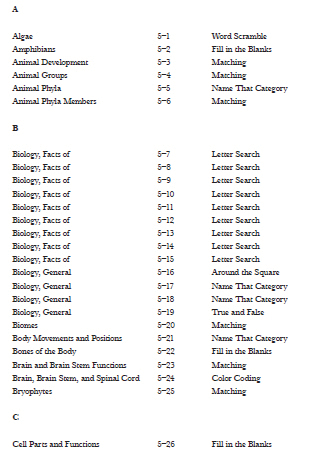
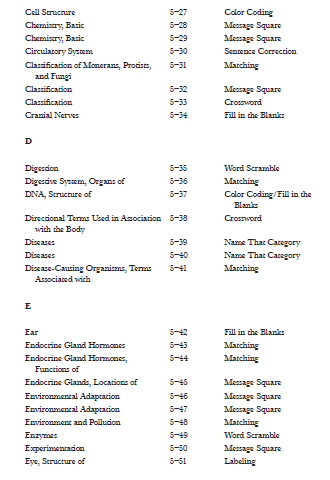
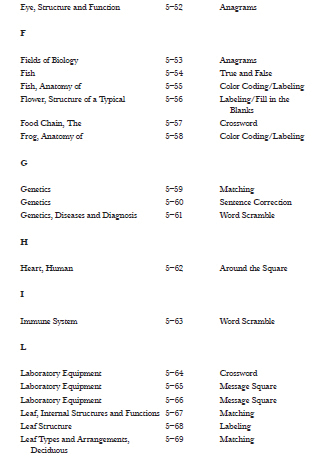
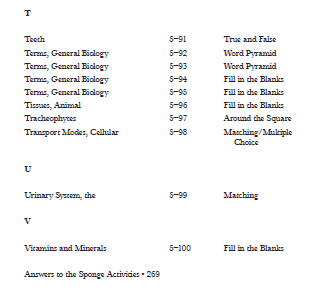
For my brother, Dave,
and his wife, Susan
Biology Teachers Survival Guide was written for the sole purpose of making your teaching of biology fun, enjoyable, and profitable for you and your students. It is packed with scores of novel and innovative ideas and activities that you can put to use immediately in your classroom.
Section 1, Innovative Classroom Techniques for the Teacher, presents a variety of techniques to help you stimulate active student participation in the learning process. It includes, among other things, an alternative to the written exam, a technique to elicit student responses to questions and discussion topics, ideas to develop students appreciation of career possibilities, a technique to keep students attention focused on the task at hand, and a way to allow students to participate in the correction of their tests.
Section 2, Success-Directed Learning in the Classroom, explains how you can easily make your students accountable for their own learning. Techniques presented focus on teamwork between you, the student, and the parent or guardian in assuring student achievement and success; the goal is no marking period grade below a C. Individual achievement is placed in the students hands, and your role of villain in the grading process is virtually eliminated.
Section 3, General Classroom Management Techniques, addresses and provides solutions to a wide variety of classroom management issues that you face in creating an ideal rapport with students. Such issues include the student opposed to dissection, student lateness to class, and the chronic discipline problem. This section also explores such topics as self-evaluation techniques, keeping current in subject matter content, preventing teacher burnout, and the art and science of teaching.
Section 4, An Inquiry Approach to Experiencing the Spirit and Nature of Science, details an effective approach to teaching scientific inquiry (the spirit) and research technique (the nature). It is complete with three fully planned inquiry units that you can begin using with the basic materials of test tubes, graduated cylinders, yeast, and molasses. Please be sure to read the list of important safety caution concerns in 4.2 first.
Section 5, Sponge Activities, gives you 100 reproducible activities you can use at the beginning of, during, or at the end of class periods. These activities cover a wide range of biology topics including the cell, classification, plants, animals, protists, the microscope, systems of the body, anatomy, physiology, genetics, and health. Moreover, the format of the activities ranges from crosswords and matching to message squares and fill in the blanks.
To help you quickly locate appropriate worksheet activities in Section 5, the Contents includes a list of all 100 worksheets in this section in alphabetical order, from Algae (Worksheet 5-1) through Vitamins and Minerals (Worksheet 5-100).
This entire book is supplemented with reproducible teacher and student worksheets and evaluation forms, all designed to streamline your classroom management and free your time for accomplishing the numerous other tasks that you face. You can photocopy any of these reproducibles as many times as required for use with individual students or an entire class.
For the beginning teacher who is new to the classroom as well as for the more experienced teacher who may want a new lease on teaching, this resource is designed to bring fun, enjoyment, and profit into the teacherstudent rapport that is called teaching.
Michael F. F leming
Michael F. Fleming, Ed.D., The Pennsylvania State University, has taught general science, basic biology, anatomy and physiology, microbiology, and behavioral science for over 30 years in the Council Rock School System, Newtown, Pennsylvania. He has participated in curriculum development and is vitally interested in new and novel approaches to motivating students to experience learning as an ongoing and enjoyable process.
Dr. Fleming has been awarded National Science Foundation summer grants and research grants from the Heart Association of Southeastern Pennsylvania. He has also presented papers at conventions of the National Association of Biology Teachers.
In addition, Dr. Fleming created and has carried out for over 15 years a voluntary student participation activity, known as The Anatomy Awards, involving the Leukemia Society of America, Inc. This activity engages students in designing costumes based on structures studied in biology and wearing the costumes in community-related activities to raise money for the Society.
Dr. Fleming has published several articles in professional journals, including Protists, Photomicrographs and Sterezooms: A Study Unit in Biology in Focus , and The S-A-S (Science As Science) Approach to Teaching Second Level Biology, Organ Alley: Pathway of Learning in a Biology Classroom, and The Incredible Edible Model: Food for Thought, in The American Biology Teacher . He is also the editor and coauthor of the Science Project Cards series, the Life Science Labs Kit (1985), and Science Teachers Instant Labs Kit (1991), all published by the Center for Applied Research in Education.
Next page
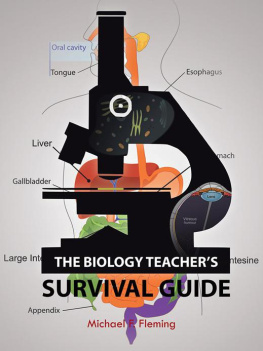


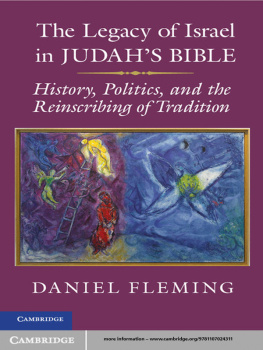

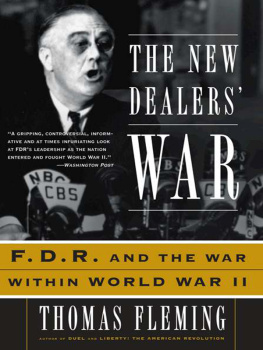

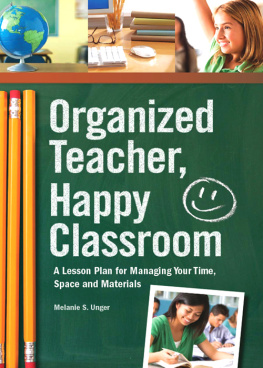
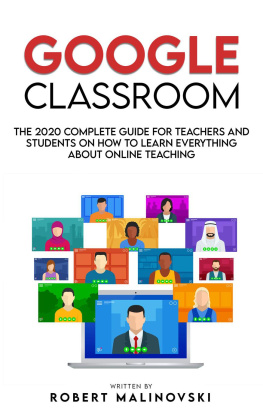


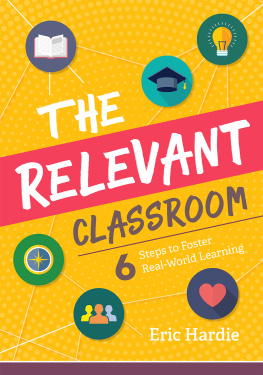
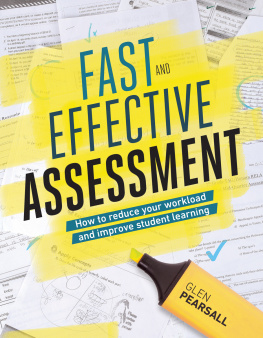
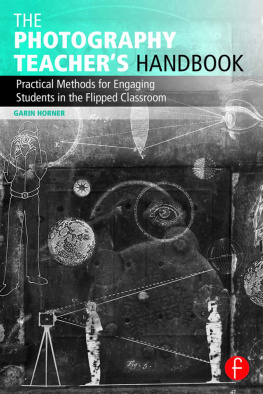
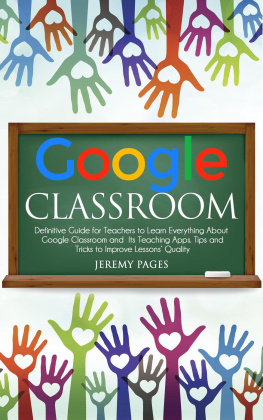
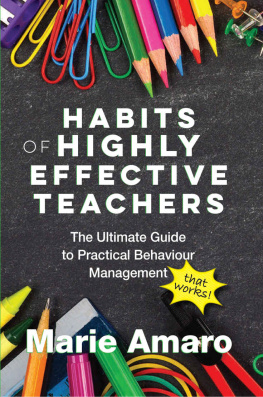
 www.trafford.com
www.trafford.com


